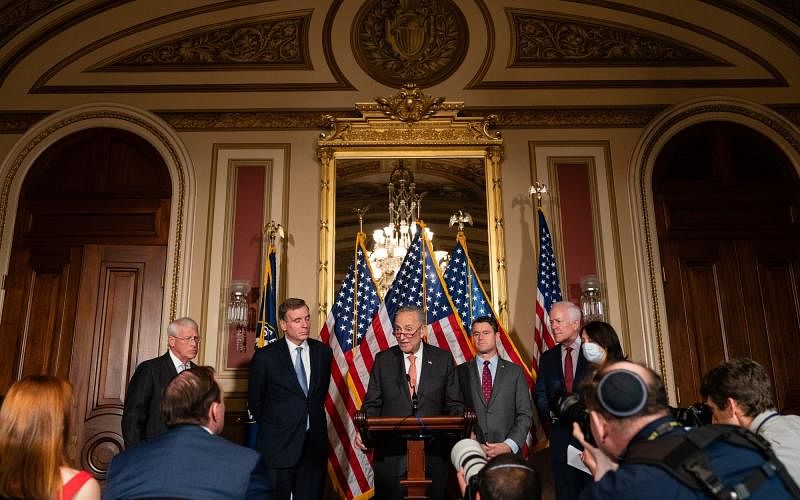
(Morning News) The U.S. House of Representatives adopted a chip bill that aims to strengthen the competitiveness of the United States and other countries, including China, including China, which is a pair of President Biden and Democratic colleagues.Victory.
Reuters reported that the final voting result of the chip bill (July 28) of the US House of Representatives on Thursday (July 28) was in favor of 243 votes and 187 votes.Sara Jacobs voted for "attending" votes.
24 Republicans joined 218 Democrats to support this bill together.It is expected that Biden will sign the bill as soon as possible to take effect next week.
The Senate passed the chip bill on the 27th with 64 to 33 votes. 17 Republican lawmakers stood on the side of Democratic Party members to promote the bill.
According to the bill, the US government will provide $ 52 billion (about S $ 71.8 billion) to subsidize the production of semiconductors in the country. At the same time, it will provide investment tax reduction and exemption for the semiconductor industry in the construction of chip factories, with a total estimation of US $ 24 billion.
The bill also authorizes the US government to allocate US $ 170 billion in the next five years to encourage relevant research and development, labor training and 5G wireless technology to improve its ability to compete with China.This appropriation requires the United States Congress to pass separately.
The Chinese Embassy in Washington issued a statement on the 27th stating that China ’s“ firmly opposed ”the“ deep -rooted cold war and zero -sum game thinking ”in the US chip bill, which“ strengthened people from all walks of life in China and the United States ”."Combat" to run away. "
Zhao Lijian, a spokesman for the Chinese Ministry of Foreign Affairs, said at a regular press conference on the 28th that the chip bill contains some clauses that restrict normal scientific and technological cooperation between China and the United States, and China has resolutely opposed it.The United States should not set up obstacles to the normal scientific and humanistic exchanges and cooperation between China and the United States. Sino -US scientific and technological cooperation is conducive to the common interests of both parties and the common progress of human beings. To restrict "decourse" will only harm others.




